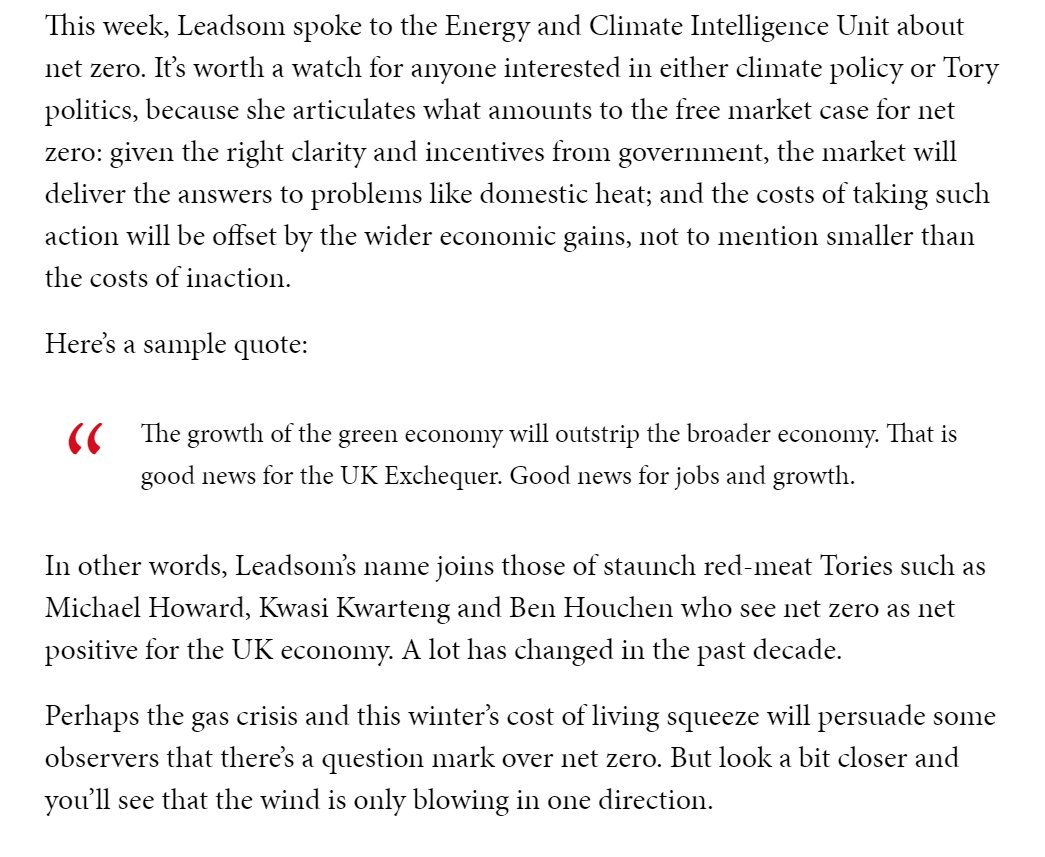
The notion that environmentalism was ever anything other, and can ever be anything other than a regressive political ideology is merely PR.
Environmentalism *requires* the immiseration and disenfranchisement of the population.
There is no "progressive" environmentalism.
Environmentalism *requires* the immiseration and disenfranchisement of the population.
There is no "progressive" environmentalism.
https://twitter.com/tedcmiller/status/1440967890438664193
From its foundation in neomalthusianism, the very centre of green thinking requires that people are excluded from decision-making, because they are not competent to understand their interests and cannot control their impulses.
There is no 'progressive' reformulation of that premise. It is hostile to people's interests, and it manifestly moves political institutions' centre of gravity far away from democracy, to technocracy.
The promise, therefore, to be able to find 'progressive' climate policies is at best delusion.
Such promises cannot be upheld. Such promisers cannot be held to account. The promises are not offered in good faith.
Meanwhile, the climate agenda still requires a blank cheque.
Such promises cannot be upheld. Such promisers cannot be held to account. The promises are not offered in good faith.
Meanwhile, the climate agenda still requires a blank cheque.
One of the first texts of the green movement, The Tragedy of the Commons, argued for the total abolition of public property, including the atmosphere and oceans.
It admitted that this was neither just nor fair, and that it would create immense hardships and injustice.
It admitted that this was neither just nor fair, and that it would create immense hardships and injustice.
But it argued that this was necessary for the protection of the planet.
Seemingly left wing revisions of TTOTC argued the opposite: for the abolition of all private property, and to hyper-regulate the commons.
To the commoners, both formulations have the same outcome.
Seemingly left wing revisions of TTOTC argued the opposite: for the abolition of all private property, and to hyper-regulate the commons.
To the commoners, both formulations have the same outcome.
There has been no democratic reformulation of environmentalism since TTOTC.
It is built on hostility to the commoners.
And that is why it appeals to remote, technocratic and anti-democratic interests.
It is built on hostility to the commoners.
And that is why it appeals to remote, technocratic and anti-democratic interests.
And that's why we see a constellation of strange little outfits, with no public support, promising to find the solutions to the excesses of the green agenda.
They're just PR for a thoroughly regressive political agenda.
@CharlotteCGill
They're just PR for a thoroughly regressive political agenda.
@CharlotteCGill
• • •
Missing some Tweet in this thread? You can try to
force a refresh





